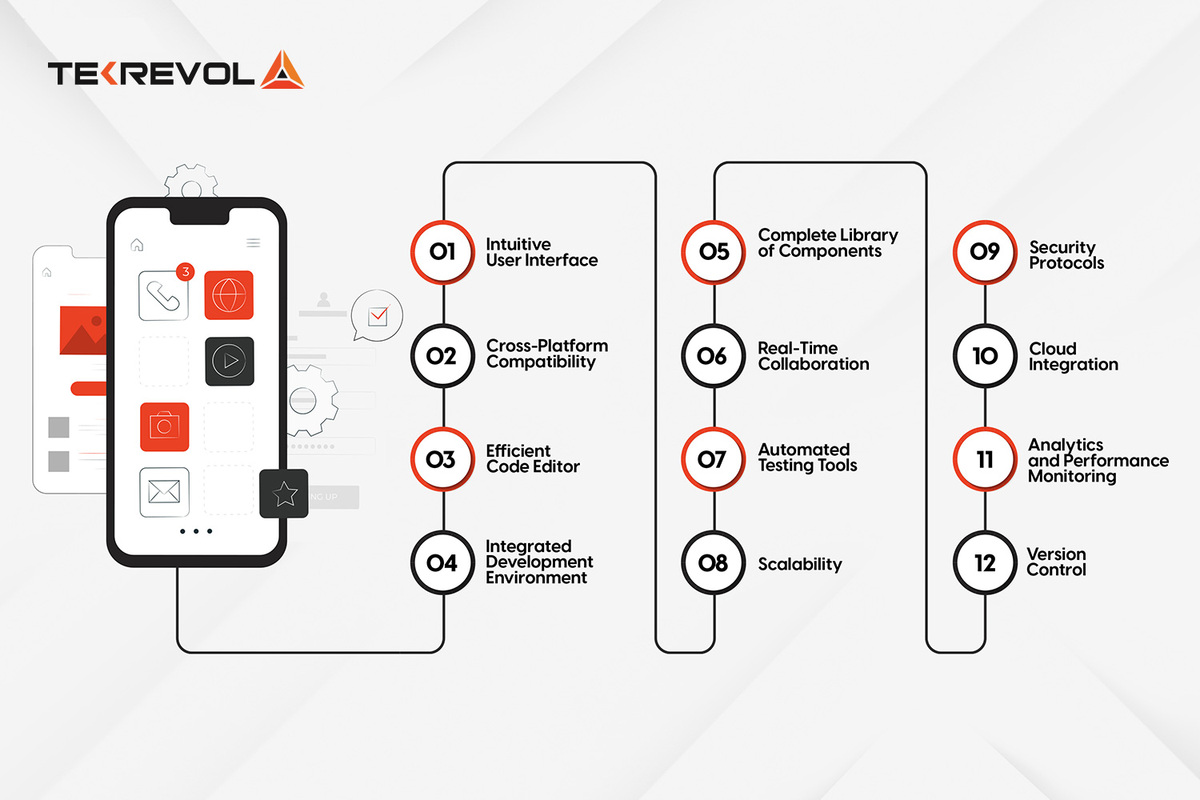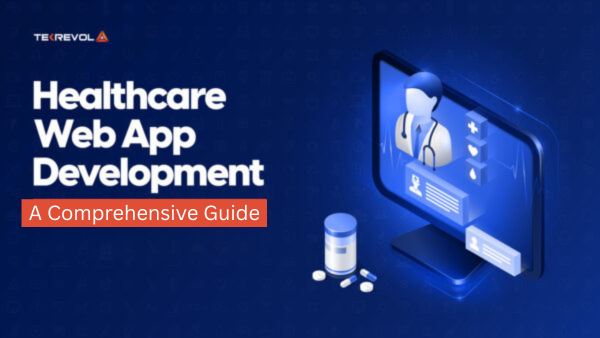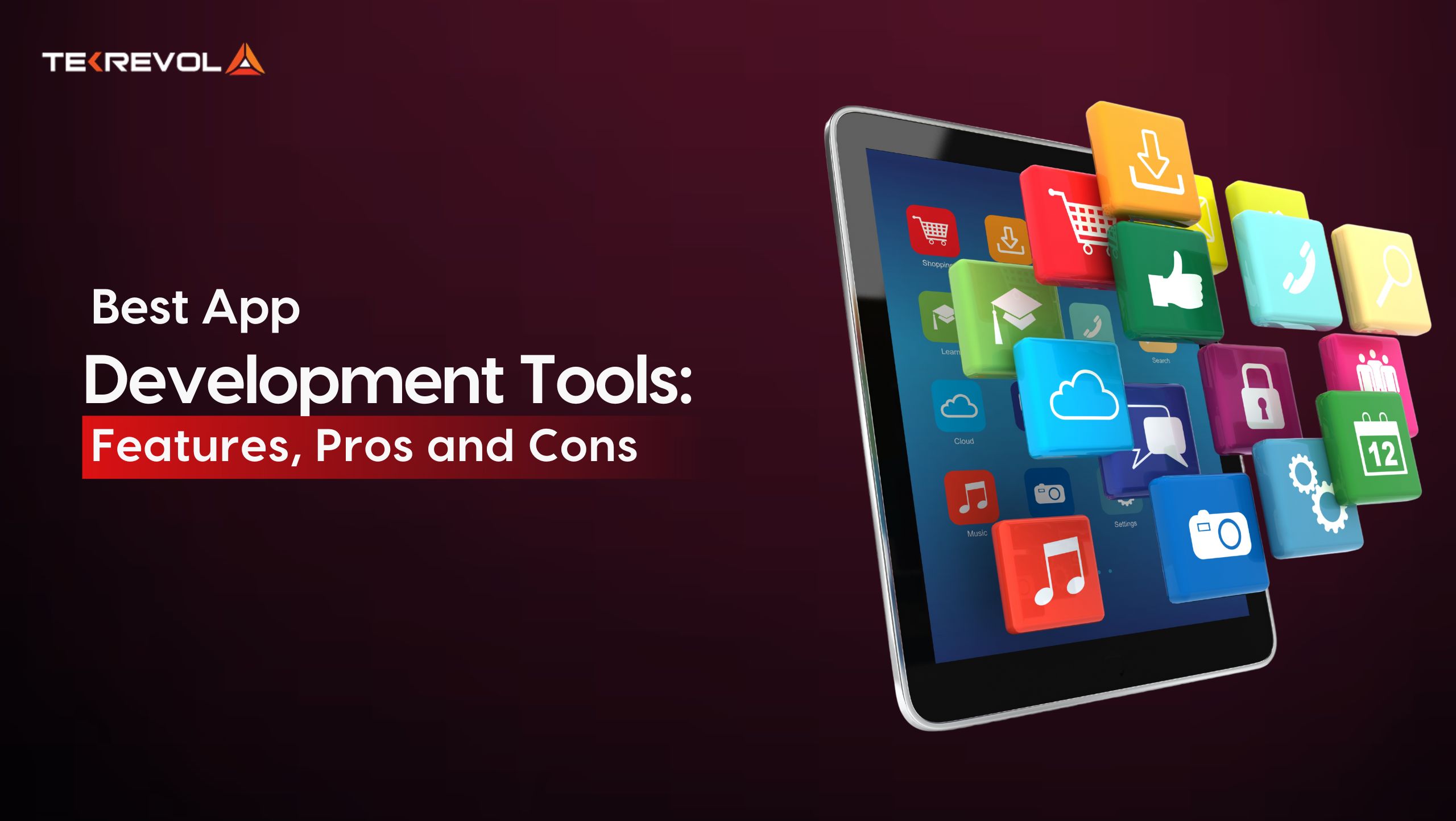The role of app development software stands as a guiding light, navigating the course of technological advancements in the dynamic landscape of digital modernization.
As we embrace better times in 2025, the need for sophisticated and resourceful mobile applications continues to grow.
Due to this surge in demand, the mobile and software app development market has seen an unprecedented rise in global market value.
The Application Development Software market’s revenue will reach US$195.80 billion in 2025.
As projected for 2030, the global market revenue for mobile apps is expected to reach $626.39 billion.
This article takes you on a journey to discover the ever-evolving world of app development software for Android and iOS, shedding light on its complex nature.
From illuminating the different types and key features to revealing the best-in-class solutions, we steer through the details of app building.
Speaking of apps, TekRevol is a prominent mobile app development company in the UK that emerges as the beacon of expertise in the application development domain.
So if you have a unique app idea, we’re poised to transform that concept into a cutting-edge mobile application.
Now, returning to our core topic, let’s continue with our expedition as we discover the potential of app development software in designing the digital future.
Types of App Development Software
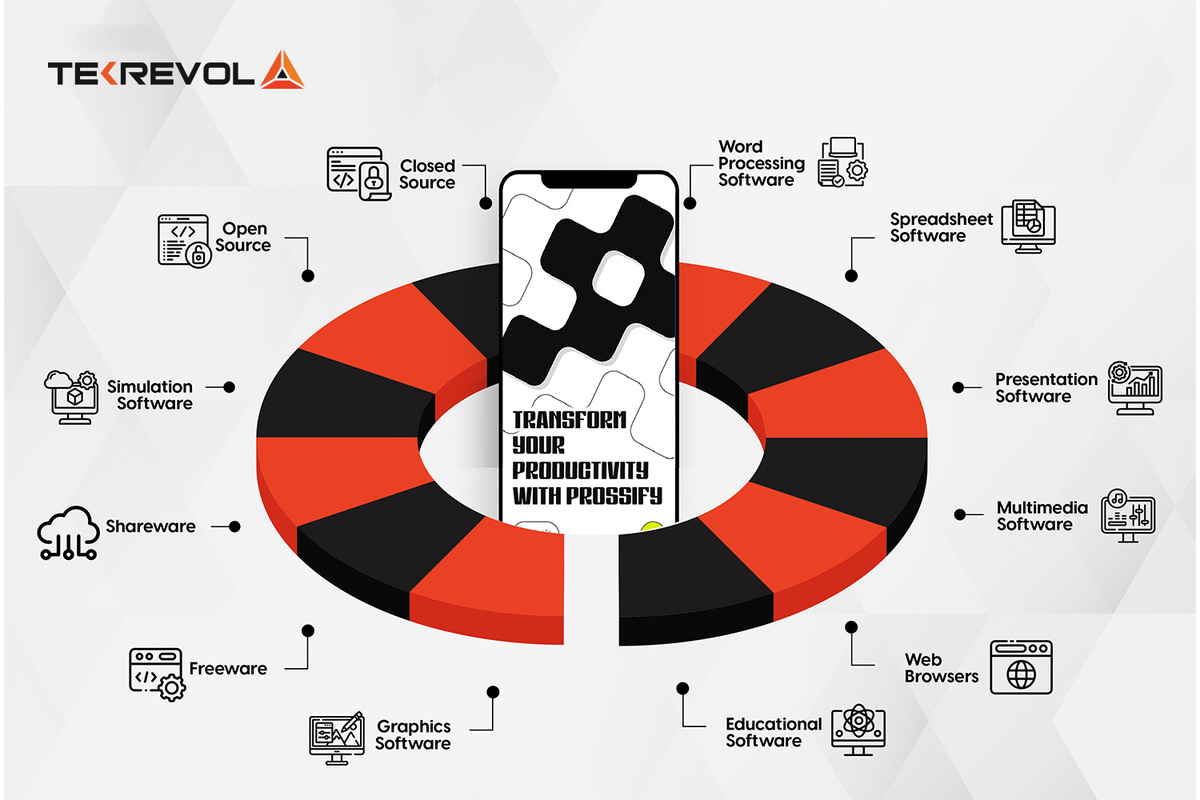
Delving into the diverse dominion of app building software reveals a rich tapestry of applications, each crafted to cater to specific requirements and functionalities.
The arrangement of these software solutions is critical, considering factors such as convenience and cost.
Application Development Software includes application server middleware, development software that offers development language, environments, frameworks, templates, functionalities to craft apps, data management software, and other relevant software.
Here’s a survey of different types of App Development Software that are navigating the digital landscape in 2025:
– Word Processing Software
A keystone of professional communication, Word Processing Software, represented by extensively used tools like Microsoft Word, permits users to create, edit, save, and print documents conveniently.
– Spreadsheet Software
Microsoft Excel and similar Spreadsheet Software transform numerical functions, offering users an automated accounting worksheet for well-organized data exploration.
– Presentation Software
Creating captivating visual descriptions, Presentation Software helps craft sequences of words and images, improving storytelling for speeches, public presentations, or product promotions.
– Multimedia Software
With the merger of text, audio, images, animation, and video, multimedia software augments content development for professional and personal use, and you are providing an adaptable range of interactive opportunities.
– Web Browsers
With the opening to the internet, Web Browsers like Chrome, Firefox, and Safari recover and display data from the web, leveraging the Hypertext Transfer Protocol to share text, images, and videos.
– Educational Software
Customized for educational purposes, this category contains language learning tools, classroom management software, and reference software, nurturing an interactive learning setting.
– Graphics Software
Graphic designers depend on tools like Adobe Illustrator and Photoshop, part of Graphics Software, to deploy bitmap and vector graphics and develop visually captivating designs.
– Freeware
Freeware, distributed for free but often used for advertising purposes, includes extensively used apps like Adobe Reader, Free Studio, and Skype.
– Shareware
Available on a trial basis, Shareware enables users to test the software for a limited time, with the option to acquire it after a specified trial period.
– Simulation Software
Engineers utilize Simulation Software to examine, improve, and compare product designs by molding real-world events in a computer-generated setting.
– Open Source
Open-source software, categorized by publicly available code, nurtures teamwork and innovation through peer review and community participation.
– Closed Source
Closed Source Software limits access to its source code, providing fully compiled, workable files with post-purchase support guaranteeing proposed functionality. Fintech app development, ERPs, RMS, and other software apps lie in this category.
These classifications form the mainstay of digital transformation, providing numerous tools to developers and businesses as they steer App Development Software’s complex landscape.
The Impact of AI and Automation in Contemporary App Development Software
Artificial intelligence and automation are revolutionizing the app development process. By 2025, the majority of top app development software platforms will have AI-based features such as smart code completion, bug discovery, user behavior prediction, and even automated UI/UX proposals.
These technologies significantly cut down development time and enhance the quality of apps. Consequently, even small teams can develop and scale high-quality applications with less effort.
Key Features of App Development Software
Software that develops applications is a dynamo of capabilities, armed with an excess of critical features that allow developers to modernize the app development process and bring their digital visions to life.
These essential features are the building blocks for successful application development in 2025 and upcoming years.
Following are some key features that are found in almost every app development software:
-
Intuitive User Interface
User-friendly interfaces streamline the development journey, enabling developers to navigate impeccably through the software and improve overall productivity.
-
Cross-Platform Compatibility
Top-tier app building software guarantees compatibility across countless platforms, allowing the development of applications that can effortlessly run on different devices and operating systems.
-
Efficient Code Editor
A robust code editor is a foundation offering developers a clean and systematized space to write, edit, and debug with the help of app development software with coding successfully.
-
Integrated Development Environment
An integrated environment modernizes the development workflow, providing a consistent coding, testing, and debugging space within a sole platform.
-
Complete Library of Components
Access to a rich library of pre-built components accelerates development, permitting developers to add functionalities without starting from the very beginning.
-
Real-Time Collaboration
Collaboration features enable teamwork, allowing developers to work together in real time, improving communication and project productivity.
-
Automated Testing Tools
In-built testing tools guarantee the strength of applications, systematizing the testing procedure to classify and resolve possible issues during development.
-
Scalability
App Development Software prioritizes scalability, allowing developers to develop applications that can grow and adapt to augment user demands.
-
Security Protocols
Robust security features protect sensitive data, integrating encryption and verification methods to safeguard applications from threats.
-
Cloud Integration
Flawless integration with cloud services simplifies storage, hosting, and deployment, providing developers with scalable and available solutions.
-
Analytics and Performance Monitoring
Monitoring tools track application performance, providing insights into user conduct and allowing developers to improve for a better user experience.
-
Version Control
Version control features modernize teamwork, enabling developers to handle and track codebase changes successfully.
These key features comprehensively outline the capabilities of best app development software, empowering developers to develop innovative, competent, and secure applications that resound with the ever-evolving digital ecosystem.
- Turn Ideas into Apps - Start Developing Today!?
- Empower Your Creativity - Create Your First App with Ease
Best Mobile Android and iOS App Development Software of 2025
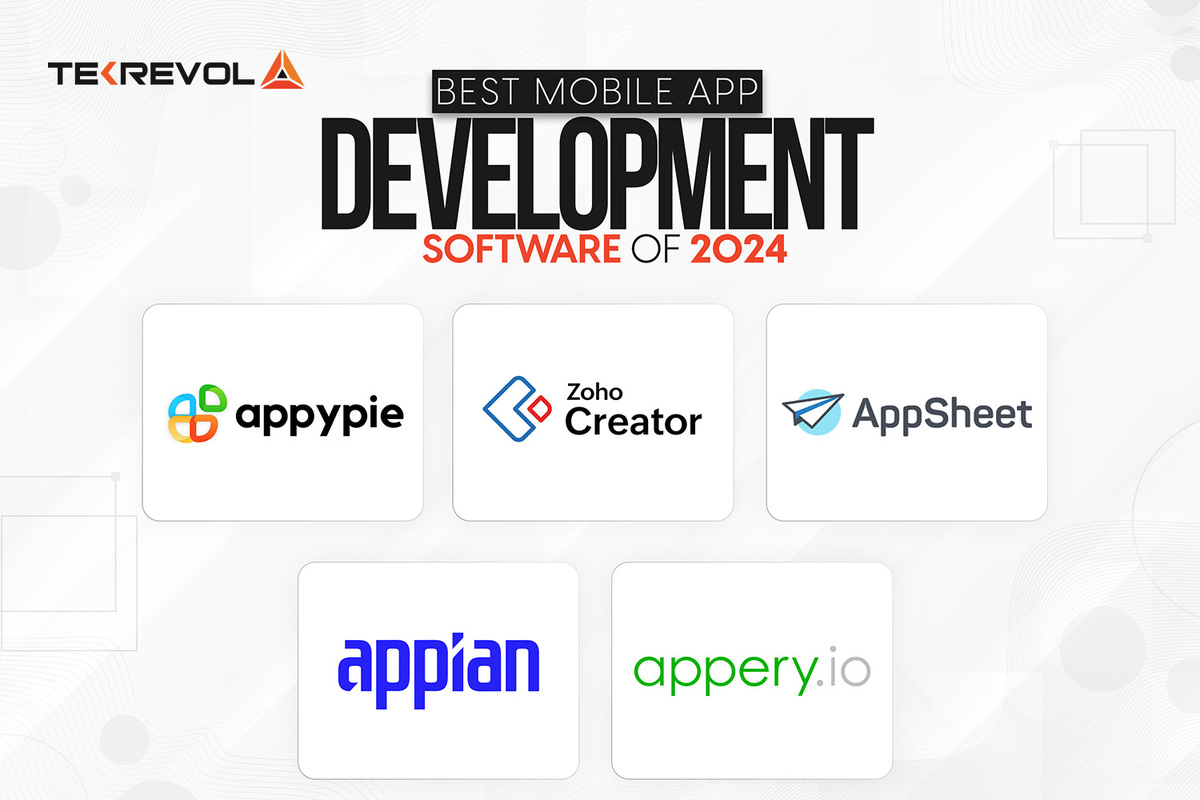
Choosing the most suitable software is paramount in the dynamic landscape of mobile app development. As we proceed in 2025, numerous platforms have appeared as forerunners, each adding unique strengths to developers.
Following is a look into some of the best mobile app development software for android app development and iOS app development expected to shape the industry this year:
– Appy Pie
Appy Pie is renowned for its user-friendly interface and no-code development proficiencies, enabling users to create custom apps without wide-ranging coding knowledge. It covers various industries, offering adaptable solutions for businesses and different entities.
– Zoho Creator
Zoho Creator excels in its complete app-building capabilities, providing a platform that permits users to create, deploy, and manage applications effortlessly. Its low-code environment allows users to develop adapted solutions customized to their precise requirements.
– AppSheet
AppSheet is identified for its no-code platform that utilizes data sources to craft feature-rich applications. With a particular emphasis on simplicity and adaptability, it caters to businesses looking to modernize their procedures through mobile apps.
– Appian
Appian is an influential low-code automation platform merging business process management and artificial intelligence. It allows swift app development, guaranteeing agility and innovation for enterprises in search of transforming their operations.
– Appery.io
Appery.io differentiates itself with its cloud-based, low-code platform, enabling the development of cross-platform mobile apps. With a visual development environment and agile backend services, it caters to the requirements of both beginner and seasoned developers.
In the world of mobile app development, the platforms mentioned above display innovation, efficiency, and adaptability, making them standout candidates for 2025.
Developers looking for intuitive solutions for developing leading-edge mobile applications can discover the strengths and features provided by these top-notch platforms.
Comparison of Best App Development Platforms
1. Appy Pie:
Strengths:
- User-friendly no-code platform.
- Versatility across numerous industries.
Considerations:
- Limited customization for intricate applications.
2. Zoho Creator:
Strengths:
- Complete app-building capabilities.
- Low-code environment for modified solutions.
Considerations:
- It can have a steeper learning curve for novices.
3. AppSheet:
Strengths:
- No-code platform utilizing data sources.
- Emphasis on simplicity and adaptability.
Considerations:
- Limited cutting-edge features for compound applications.
4. Appian:
Strengths:
- Powerful low-code automation platform.
- Merges BPM and AI for hasty app development.
Considerations:
- We may need a more in-depth understanding of business processes.
5. Appery.io:
Strengths:
- Cloud-based low-code platform.
- Visual development landscape and robust backend services.
Considerations:
- Some users can find the interface initially overwhelming.
Comparative Insights
The decision pivots on user expertise, project intricacy, and desired functionalities when selecting the most suitable app development platform for your business needs.
Appy Pie and Zoho Creator provide user-friendly interfaces, making them perfect for beginners, while Appian caters to enterprises with its commanding automation proficiencies.
AppSheet and Appery.io strike stability, offering handy solutions for multiple skill levels.
Eventually, the best choice relies on the requirements and partialities of the developer or organization, with each platform providing an exclusive set of advantages for creating innovative mobile applications in 2025 and the future
Best Free Mobile App Development Software
Explore the free app development software options, each providing exclusive features and trial periods to jumpstart your app development journey.
| Software | Key Features | Trial Period |
|---|---|---|
| AppMySite | No-code app development for all CMS platforms | 14 Days |
| PhoneGap | Easily integrates with various libraries | 30 Days |
| Flutter | Includes interactive paradigms, mobile components | 14 Days |
| Ionic | Incorporates critical platform differences | 14 Days |
| Xamarin | Real-time testing module | 30 Days |
| Buildfire | Build custom functionality with developer SDK | 14 Days |
| Appy Pie | Develop functional apps without coding | 14 Days |
| Felgo | Uses custom UI rendering to reduce interaction | 14 Days |
| Mobincube | Easily integrate third-party solutions | 14 Days |
| Alpha Anywhere | Enterprise-grade HMAC data encryption | 14 Days |
App Development Software Cost
Steering the App Development Software landscape includes carefully deliberating costs, a critical attribute that designs the development journey.
The pricing models for these software solutions can change, reflecting the attributes and aspects of each App, scalability, and support they will provide.
From free trials to subscription plans, the estimate cost of app development software can change due to factors like complexity, user base, and deployment requirements.
Multiple platforms like Appy Pie, Buildfire, and Mobincube offer pricing structures with free trial periods, enabling users to discover their offerings before committing.
Others, like Xamarin and PhoneGap, provide prolonged trial durations, covering the diverse requirements of developers.
Businesses and developers must consider the cost against the features and support available, confirming alignment with the project’s goals.
Whether choosing no-code platforms or robust enterprise-grade solutions, comprehending the app development cost UK, USA, GCC, or any other region is vital for making well-versed decisions and boarding on a successful development journey.
- How much will it cost to create your App with preferred app development software?
- Get Your App Estimation Today!
- Calculate Now
Security-First Development: How App Software is Prioritizing Data Protection
With increasing cyber threats and more stringent data privacy laws such as GDPR and CCPA, application development software in 2025 is making security-first development a key priority.
Modern platforms now integrate encryption libraries, secure authentication systems, and compliance modules to enable developers to create secure applications from scratch.
Today’s tools now include real-time vulnerability scans, zero-trust architecture integration, and self-healing security patches at update time. For developers and companies both, selecting software that embraces secure coding practices and provides security monitoring solutions is not an added feature—it’s required.
This forward-thinking ensures apps aren’t only operational but also secure against contemporary cybersecurity threats.
Considerations for Choosing the Best App Development Software
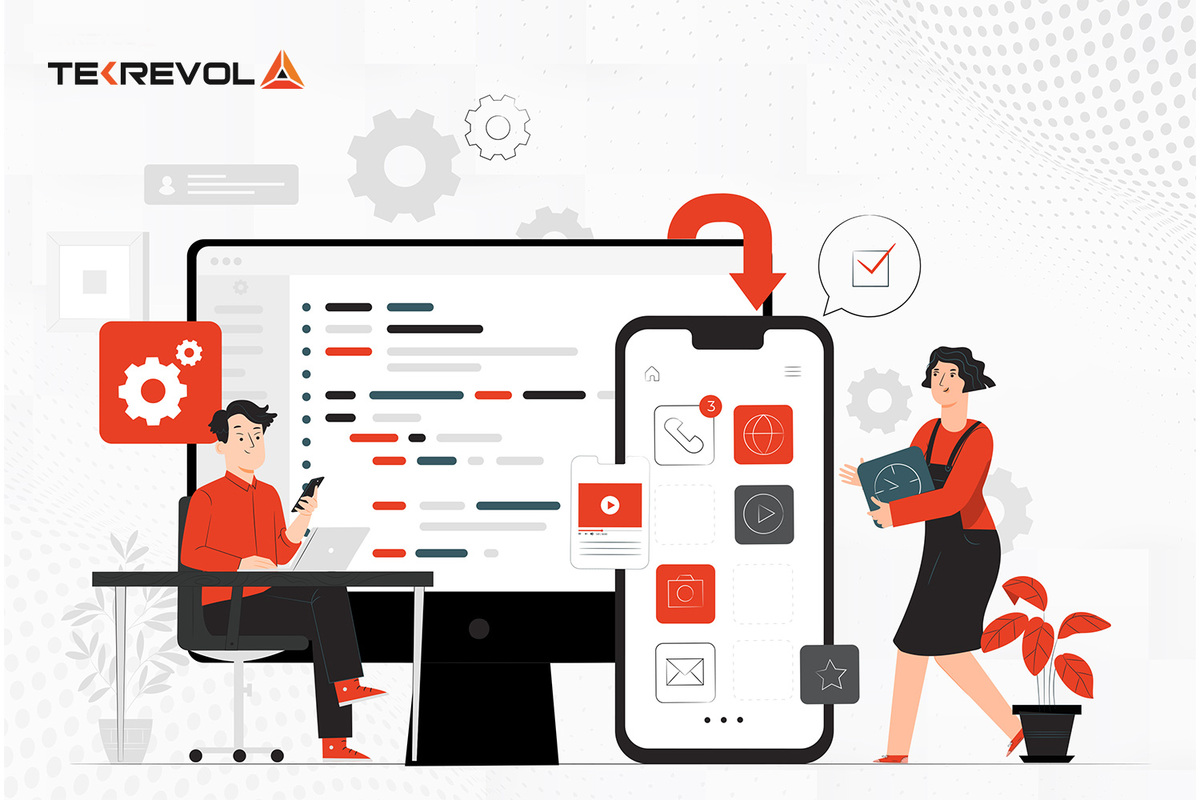
In a time when user-friendly app development is being promoted, crafting your mobile application has become more manageable, even for those without minimum or no prior coding experience.
Nevertheless, despite the advent of no-code and low-code platforms, there is always a learning curve linked with multiple app development software solutions.
Whether learning a primary drag-and-drop interface or diving into more progressive coding, the process requires a level of understanding of the chosen platform.
While some mediums, like Appy Pie or Mobincube, decrease the requirement for coding, others, such as Xamarin or Flutter, may include more complex programming.
Irrespective of the approach, investing time to comprehend the preferred software is essential.
Even with the notable tools accessible, an inclination to learn and discover the platform’s functionalities is crucial to harnessing its full potential.
As you board your app development odyssey, the learning curve is a compulsory step towards revolutionizing your ideas into practical and state-of-the-art mobile applications.
Thoughts on selecting the most suitable app development software involve assessing your project’s complexity, scalability requirements, and chosen coding level.
As this mobile app development company London suggests that scrutinizing trial periods, support options, and user community response is imperative to find the best app development software.
Prioritize platform positioning with your learning style, guaranteeing an effortless integration into your development workflow.
Go for a software solution that matches your project idea and growth ambitions.
Trends in App Development Software
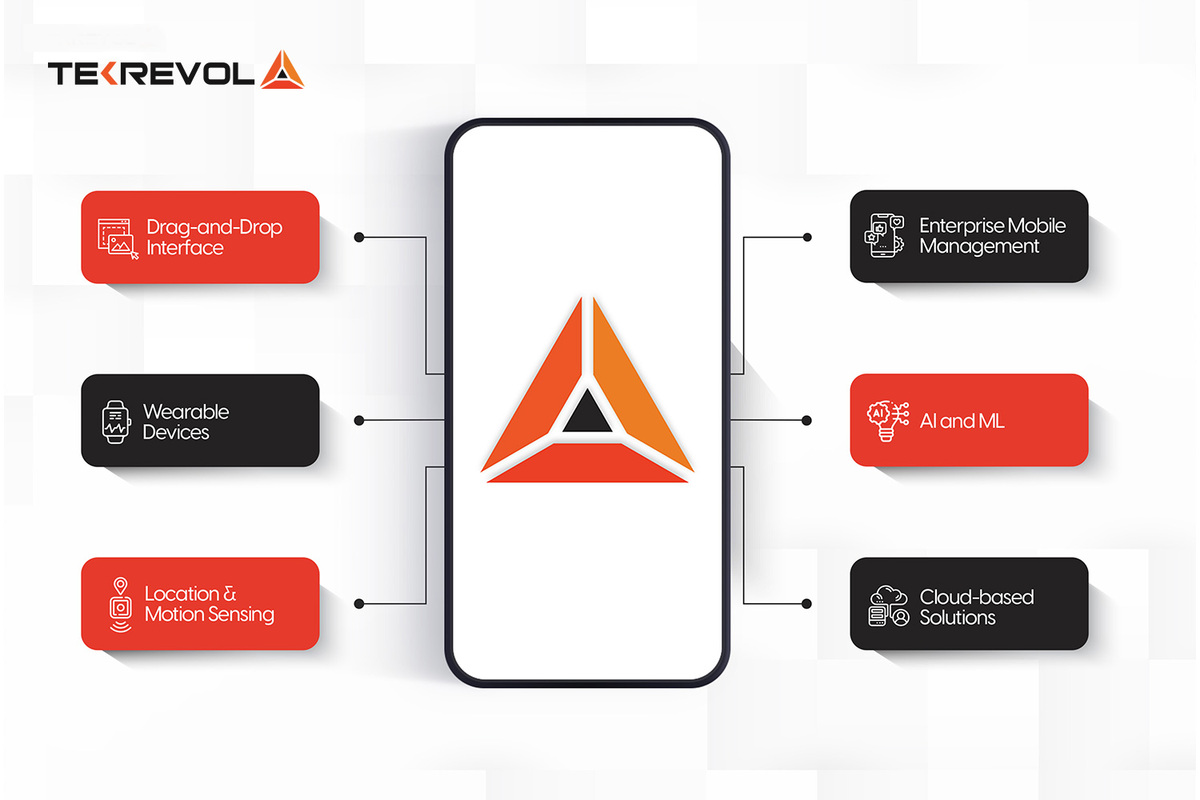
The app development software landscape is rapidly evolving, and multiple trends are shaping this industry.
Embracing the pattern of low-code and no-code platforms, iOS and Android app development companies have observed a gush in tools like Appy Pie and Buildfire, easing swift application development without extensive coding.
The addition of artificial intelligence, as seen in platforms such as Appian and Flutter, augments app functionality.
Cross-platform development, backed by Xamarin and PhoneGap, endures to achieve distinction, permitting developers to craft apps compatible with different devices effortlessly.
Cloud-based solutions, as demonstrated by Appery.io, deliver suppleness and scalability.
As the requirement for enveloping experiences increases, trends in app development software highlight the importance of staying attuned to evolving technologies to develop pioneering and user-centric applications.
- Ready to Start Your Development Journey with Us?
- Join Forces with TekRevol's Top-notch App Development Services!
Summing Up: Embracing the Conclusion
The dynamic world of app development software has witnessed a year of innovation and user-centric approaches, and more change is expected for 2025 and the upcoming years.
A custom software development company should possess a multitude of tools, whether using no-code platforms for fast development or diving into complex coding with progressive solutions.
As artificial intelligence cross-platform compatibility and cloud-based solutions redefine the landscape, the key lies in choosing the right software for your project requirements.
Embracing these trends guarantees that developers stay in front of their competition in crafting applications that meet existing standards and set the stage for the future of mobile app development.
- Have questions about choosing the best App Development Software for your Venture?
- Connect with us for personalized insights and expert assistance from our team.

 2548 Views
2548 Views April 6, 2025
April 6, 2025
